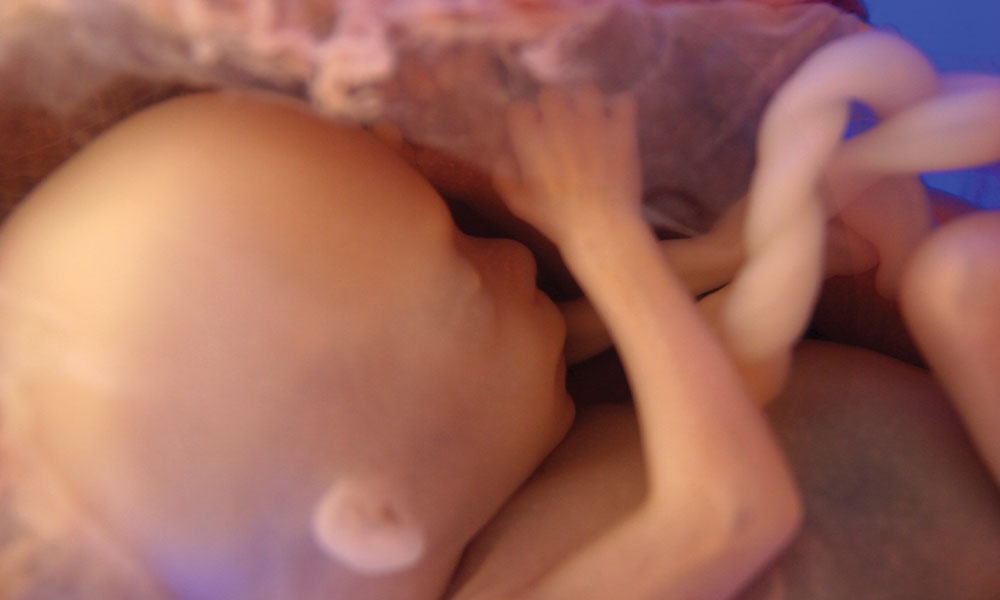
What does the Church teach about IVF?
Getting your Trinity Audio player ready...The Diocese of Lansing Commission for Catholic Social Teaching exists to inform and inspire the lay faithful to think through and apply Catholic principles to social problems. Here, Jenny Ingles explains the complex and sensitive issue of in vitro fertilization (IVF) and how Catholics can apply the Church’s teaching with regard to it, while bearing in mind the dignity of the human person.
The Diocese of Lansing Commission for Catholic Social Teaching exists to inform and inspire the lay faithful to think through and apply Catholic principles to social problems. Here, Jenny Ingles explains the complex and sensitive issue of in vitro fertilization (IVF) and how Catholics can apply the Church’s teaching with regard to it, while bearing in mind the dignity of the human person.
IVF is a common procedure, and many of us have loved ones who have undergone IVF or who were born from IVF. Before discussing IVF, it is important to recognize that every human person is a beloved child of God who is willed into being by God. This statement is true of all human beings, no matter how they came into the world. God, through his permissive will, allows humans to act contrary to his good design, but that doesn’t mean God doesn’t bring good out of bad. From the moment of conception, God gives us an infinite dignity and provides us with inherent and inalienable rights. Regardless of how a child is conceived, that child is fully human, fully loved by God, and has the same inherent dignity all humans possess.
God created the world so we can share in his truth, beauty, and goodness. Yet this world is not perfect. Sadly, we experience pain and suffering. For many couples, this anguish is a struggle with infertility. In their search for help, couples are often unaware of the moral teaching the Church provides to guide them to make good decisions.
Human life is a gift from God. All human beings are made in the image and likeness of God and have been redeemed by Christ. A gift is not a “right” to be demanded, but a freely given favor to be received. God does not owe us children. A child is not a piece of property and cannot be demanded, discarded, or sold. A child possesses infinite dignity and has inalienable rights. One of those rights is to be the fruit of the loving, marital embrace of his parents.
The spouses’ conjugal act (marital intercourse), by its nature, is designed by God to be both unitive (love-giving) and procreative (life-giving). It is against the nature of the conjugal act, and is immoral, to engage in activities that purposely seek to separate either union or procreation from it. For this reason, medical therapies that separate the unity of the spouses, but still result in the conception of new human life, are immoral. Marital intercourse must never be replaced, made optional, or unnecessary in the conception of a child. It is essential.
So, what is IVF and why does the Church teach that it is immoral? In IVF, multiple human embryos are created by harvesting sperm and eggs from a man and a woman and then combining them in laboratory dishes. The embryos, which are human beings, are then graded based on how they look, and less desirable embryos are destroyed or discarded. Embryos that are not discarded, or implanted in the woman, are either frozen, or donated for scientific research, or to other women.
IVF has an extraordinarily high failure-rate of 65 percent to 80 percent every time it is performed. For this reason, it is common to create multiple embryos and then implant more than one embryo into the woman to increase the odds of successful implantation, gestation, and birth. Twenty-five percent of IVF pregnancies result in twins whereas only 0.5 percent of natural pregnancies result in twins. Twin (and higher) pregnancies are more likely to result in poor outcomes for both the woman and babies; however, pregnancy complications are even more likely if it is an IVF pregnancy. For this reason, when more than one embryo implants and begins to grow in an IVF procedure, many women undergo a procedure known as “multifetal pregnancy reduction” (MFPR) surgery, which is, in fact, selective abortion. MFPR is conducted in the first or early second trimester. During MFPR, one or more of the babies is aborted to increase the odds that the other baby or babies will live and to reduce the risk to the woman.
The desire for a child is praiseworthy and good; however, it is not enough to make IVF morally permissible. IVF violates the dignity of the human person. It violates the dignity of the spouses and of the conjugal act by dissociating “the sexual act from the procreative act” (CCC 2377); and it violates the dignity of both the woman and the man, reducing their value to their reproductive cells. It nearly always involves the destruction of human beings either by discarding embryos, freezing them indefinitely, or through abortion. It subjects the life and identity of the embryo to the power of third parties whose technical activity determines the outcome. Infertility is an enormous cross, and we should assist couples bearing this cross. But it must always be done in a way that is morally permissible.



